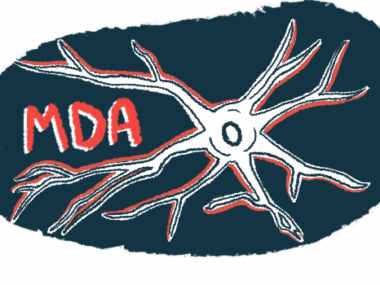Eikonoklastes Acquires License to Potential ALS Gene Therapy
Written by |

Eikonoklastes Therapeutics has added a candidate gene therapy for amyotrophic lateral sclerosis (ALS) and other neurodegenerative diseases to its pipeline.
The announcement follows the completion of a licensing agreement with the University of California San Diego. Brian Head, PhD, a professor with the university’s department of anesthesiology, and his team were the inventors of the gene therapy technology.
“Our gene therapy is a unique, neuroprotective approach to helping patients,” Head, who is also a consultant to Eikonoklastes, said in a press release. “We hope to make significant progress in the treatment of ALS and give families hope for the future.”
Eikonoklastes’ release did not disclose how the therapy works, its exact mechanisms. But Samuel Lee, a company co-founder and chief business officer, said it has the “potential to treat both familial as well as the 90%-plus cases” of sporadic ALS.
“We are very encouraged by the world-class research from Dr. Brian Head’s lab at UC San Diego,” Lee said. The gene therapy has also shown promise in early, preclinical work in Alzheimer’s disease, he added, and the company is “excited about the future opportunities in many other diseases.”
The lab worked in Alzheimer’s mouse models, with animals genetically modified to express little of the Caveolin-1 (Cav-1) scaffolding protein found in the membranes of cells, including neurons, and essential for cell signaling or communication. Mice models lacking Cav-1 exhibit “learning and memory deficits at 9 and 11 months, respectively,” UC San Diego reported in a May 2021 release.
At age 3 months, the mice were treated with a single injection of the gene therapy, called synapsin-Caveolin-1 cDNA or SynCav1, delivered by a modified adeno-associated virus into the hippocampus region of the brain. This region is associated with learning and memory.
“Our goal was to test whether SynCav1 gene therapy in these AD [Alzheimer’s disease] mouse models might preserve neuronal and synaptic plasticity in targeted parts of the membrane, and improve higher brain function,” Head said.
Study results, published in June, were positive. “The present study is the first to demonstrate that a one-time SynCav1 gene delivery preserves the hippocampal structure and hippocampal-dependent cognitive function in a … mouse model of AD,” delaying “neurodegeneration and cognitive deficits,” the researchers, led by Head, wrote.
Preclinical studies in ALS mouse models were also noted in the university’s release.
Eikonoklastes was founded with a focus on developing therapies for triple negative breast cancer, which can be resistant to common treatments. It now plans to expand its pipeline to address other diseases without effective therapies.
“Our stated objective is to develop innovative medicines that address significant unmet clinical needs for patients. Our therapies addressing Triple Negative Breast Cancer as well as catastrophic diseases such as ALS reflect that commitment,” said Tom Finn, a board member at Eikonoklastes and the former president of P&G Global Health Care.
Of note, Head licensed a version of the SynCav1 gene therapy to CavoGene LifeSciences in 2018 as a potential ALS treatment.






